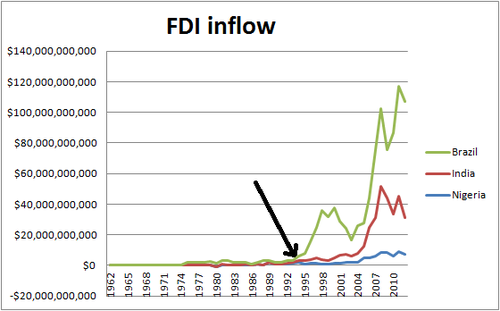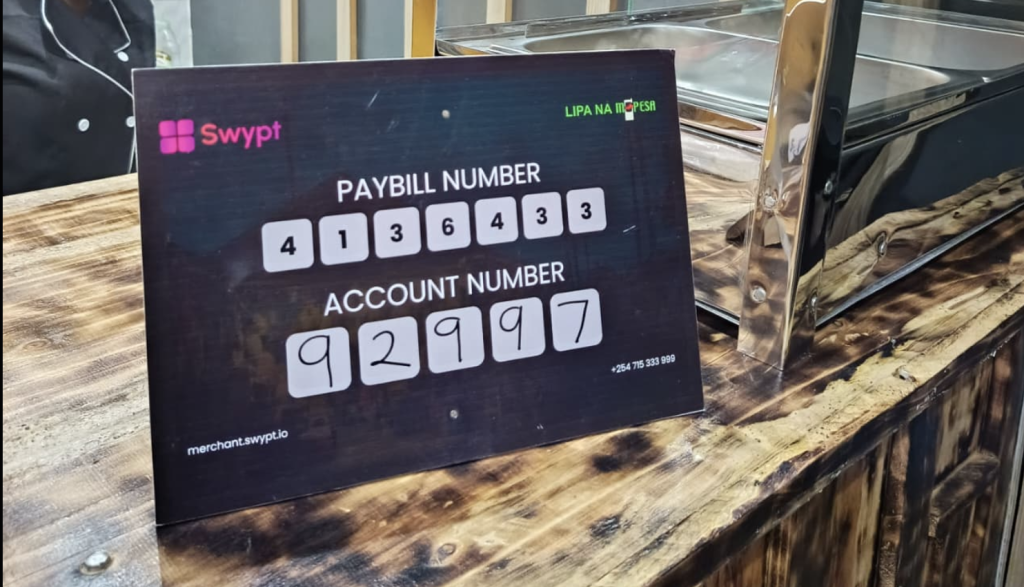
I remember working with an Indian developer called Ajay in 2003 whilst building a VOIP billing portal to interop with Vocaltec’s proprietary VOIP gatekeeper. Long story but Ajay never delivered and he also made away with a database of clients. We ended up working with Vlad, a developer from Ukraine to complete the project.
Now over the years I have needed to outsource a number of projects I have been involved with. I don’t code and my skills in this respect remain limited to project management, requirements gathering, and planning. I could throw in some basic UNIX, HTML and PHP, but that’s about it.
So being the patriotic Nigerian that I am, my first thought when I have a project to execute is always can I get a developer in Nigeria to implement this? Would they execute per plan? Will they deliver on budget? Will they have the right skill set? Will they deliver to expected standards/quality and best practice? In most cases I have found it rather difficult to give a yes answer.
I am rather sure my quest isn’t an isolated one.
Now I am not saying there are no skilled developers/technology professionals in Nigeria. The question is where are they? If I needed a good developer like yesterday, where would I go without pulling teeth? If the visible players like iROKOtv have their development teams in London and not Nigeria where labour is presumably cheaper, then it is worrisome what ecosystem is really being built.
In a similar light, a few months back I heard of a new app and wanted to read up on it as it was well hyped up (name withheld). I Google the app only to find out the app was actually designed by a freelancer in Europe. But why would they need to go all the way to Europe I thought?
It’s really simple in my view, if we don’t have the required skill sets, we certainly don’t have a technology ecosystem. No doubt there is a market to exploit, however we must recognise there is a huge skills deficit.
Are we really open for business?
There is no doubt there is focus on how huge the Nigerian potential is. The pitches are similar if you have been listening. We are underexploited, a country of 180m people, year on year GDP growth even close to double digits.
These are mouth watering propositions to any investor but I would question how open we are for business.
The numbers speak for themselves. Countries like India and Brazil have come a long way. Good fortune? I would like to think not. I pulled out the FDI numbers for Nigeria, India and Brazil – they give a glimpse into our readiness and openness to trade in general. Our numbers are worryingly lukewarm.
The Nigerian Investment Promotion Commission Act 1995 was enacted to attract foreign participation in Nigerian enterprises. Twenty years down the line, the numbers speak. The bulk of incoming FDIs still relate to the oil and gas sector.
A skilled workforce (like the developer I needed like yesterday) is certainly required to build this budding ecosystem and no doubt FDI will play a significant role in accelerating the current skills deficit via skill transfers, education and training. A nationalistic plea to keep the ‘foreigners’ out will certainly not resolve the current skills gap. I also don’t think the willingness and gravitas of one individual (without the right policies and environment) will do so. The change has to be driven by policy, yes government policy.
Having the right skill set is one thing, having the enabling environment to use those skills another. This is not what people want to hear but all evidence suggests we have a huge skills deficit driven by years of corruption and neglect. Who will build these awesome technology companies?
Follow me to Bangalore, the Indian Silicon Valley
Bangalore contributes around $83bn to India’s GDP primarily from IT and BPO services. Now that number is close to a 3rd of Nigeria’s GDP before the current GDP rebasing. These impressive stats have led the Bangalore ICT cluster being dubbed the Silicon Valley of India.
India’s GDP make up has gravitated steadily into a service industry driven primarily by technology and innovation. When multinationals and major corporations join the outsourcing race of major IT services to countries like India then you need to stop, look and listen.
The Indian story is an intriguing one, a story built on a clear vision to be at the forefront of technology and innovation. For me, the greatest takeaway is the highly skilled workforce serving both local and international markets.
Can Nigeria surpass these stats? Most certainly we can. We have the potential to do so with the right leadership and vision.
What market do we really speak of?
In my mind the Nigerian technology driven market potential is two-fold
1. The use of technology to unwind the chaos of reaching out and monetizing the circa 180m Nigerian market
2. Creating a robust technology ecosystem with the right technical skill set and support framework to serve both local and international markets
It’s really hard to see how we achieve exploiting the market potential of reaching out to 180m Nigerians without a clear vision on how we achieve 2 above albeit for local requirements only. There are laudable strides being made but we must recognise there remains a huge skills deficit. That for me is a first step in the right direction.
I really don’t want to have to go to Ajay or Vlad when next I have that all so wonderful idea to implement. I would like to think we have the potential and ability to compete in this space. However the success criteria remains tied to having right government policies and enabling environment to achieve this.
If we dismiss the role of government policy in driving and enabling the future of this ecosystem, we dismiss the very opportunity we speak of.
I explore these markets and policies in my follow-up post.
PS. We are estimated at 170m 🙂
This post first appeared on Peter’s blog.











